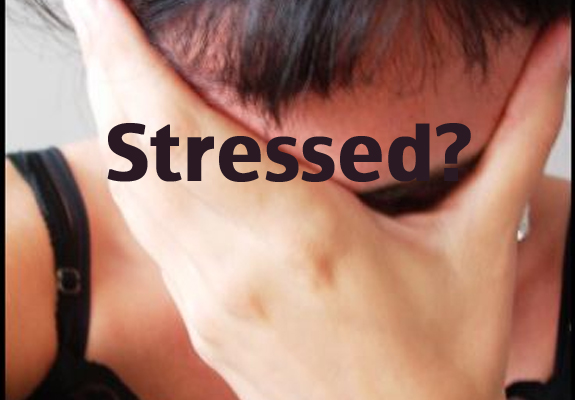
Sometimes I look at Facebook or Instagram (I hope you will join me at both!) and think that everyone’s life just seems to be sailing along without any problems. Then I remember that people put things on Facebook that they want others to see and often times leave off the negative things.
I do that too. I think a lot of us do.
Our Facebook/Instagram persona and real life can be quite different.
Real life is sometimes smooth, sometimes rough, and a lot of times it is a bit of both.
That’s true for me lately. We’ve had some really busy times with school getting closer to finishing up, kids going on trips, musical performances, and financial challenges (think replacing a very expensive geothermal air conditioning unit) that required us to make some tough choices.
Financial difficulties can be stressful, busy times can be stressful, and health problems can definitely add stress to your life.
What impact does stress have on your weight loss efforts? If you are like most people, stress can definitely affect your weight, and not in a good way. Here’s a quote from an article the Mayo Clinic website.
While the immediate . . . response to acute stress can be a temporary loss of appetite, more and more we are coming to recognize that for some people, chronic stress can be tied to an increase in appetite — and stress-induced weight gain,” says Elissa Epel, PhD, an assistant professor in the department of psychiatry at the University of California at San Francisco.
I know that stress eating is very common.
How many times have you heard someone say, “I’ve had a hard week and I deserve this treat,” as they stuff themselves at a restaurant. I used to do that. I also used to break out the secret stash of candy and eat as much as I could before anyone saw me when I was feeling stressed.
Stressful times do not have to mean weight gain. In fact, when you gain weight during stressful times you are likely adding to your stress.
I often tell people that one good thing about having to lose a LOT of weight was that it took me a long time. During the time I lost 158 pounds I experienced all the holidays, all the birthdays, all the social events, and a lot of stress. Learning to handle those situations and still lose weight was very valuable because it taught me that even though stress eating was one of my habits, it was a habit that I could control and even remove.
You may be asking how I managed those stressful times without gaining weight or falling off the wagon. Well, it wasn’t easy. But I did it and you can too.
Although I didn’t have a “list” to go by at the time, I have put together a list of tips to help you stay focused on your weight loss effort during stressful times.
1. Do Not Shove the Stress Deep Down – Acknowledge that you are stressed. This always helps me because trying to shove the stress deep down and pretend it isn’t there often causes more stress.
2. Stay Active – Exercise is a proven stress reducer and a surefire way to keep yourself out of the kitchen or away from restaurants. After all, it’s pretty hard to eat if you are lifting weights, walking, or swimming.
3. Get Enough Sleep – Not getting enough sleep negatively affects your weight in the best of circumstances and likely has an even more detrimental effect when you are stressed. Make yourself go to bed at a reasonable hour and avoid burning the candle at both ends.
4. Get Help – Ask for support from friends and family to manage your stress and avoid overeating. Depending on your relationships, you can ask friends to hold you accountable, keep your kids for a few hours, or brainstorm on ideas for solving the problem that is stressing you out.
5. Eat in Moderation – If you just cannot avoid the cookies or ice cream when stressed out, remind yourself of the importance of portion control. One cookie won’t hurt your diet for the long term but box after box of cookies surely will.
6. Feed Yourself Healthy Foods – Eating a well balanced diet helps you control your calories as well as giving your body the nutrients it needs. High calorie junk food may taste good going down but it can cause your blood sugar to crash, your appetite to increase and increase your stress level from the guilt you feel after eating it.
7. Recognize the Warning Signs – Know yourself well enough to recognize the signs of stress in your body. You may feel anxious, find sleep difficult, or find yourself snapping at people.
There are a lot of ways to deal with stress and you need to find what works for you. I am still a stress eater but I am a stress eater who usually controls the urge using some of these techniques.
What techniques have you found to help you avoid stress eating? Diane
(c) Diane Carbonell Weight Loss Expert – Read entire story here.